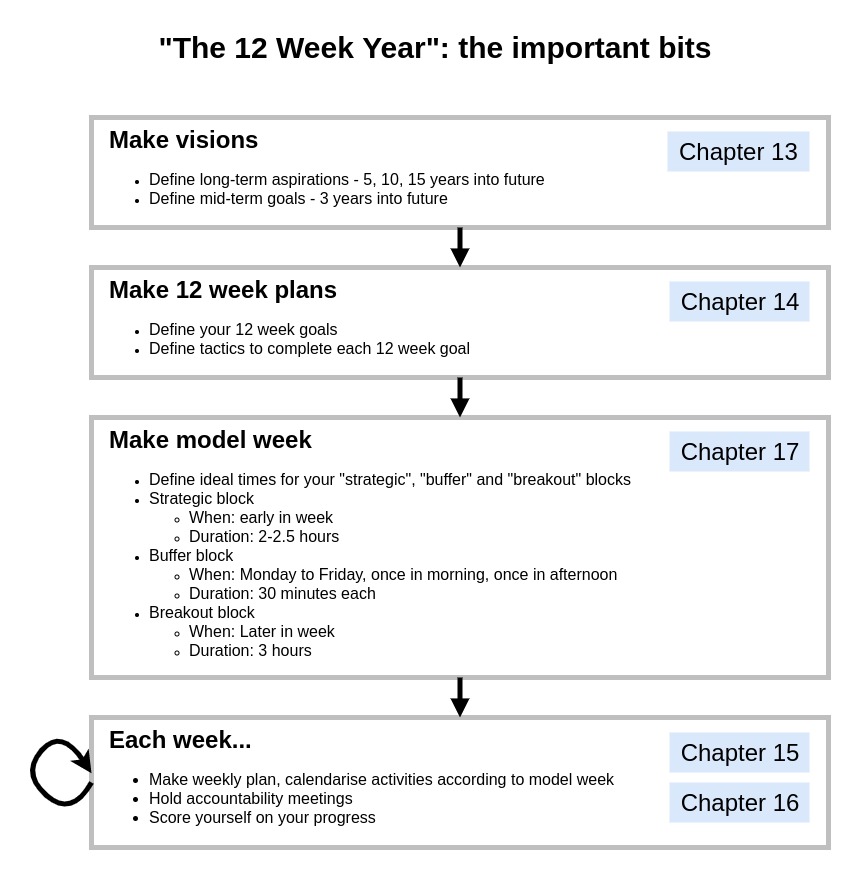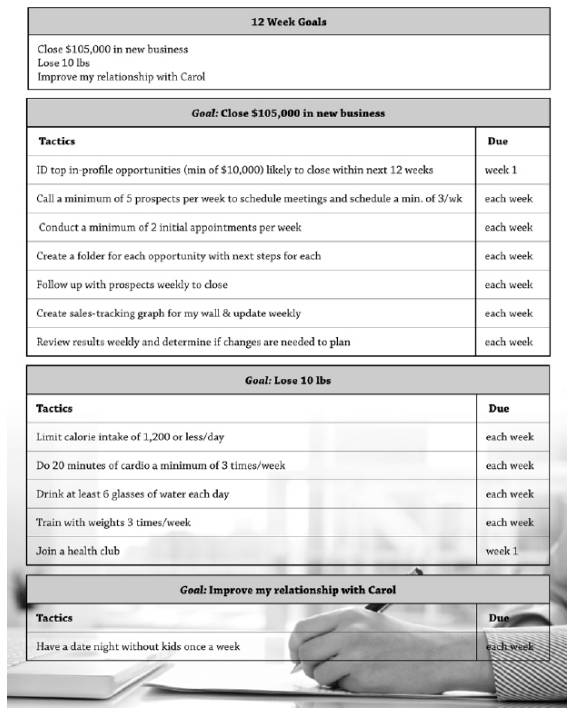An effort to regain control of my life through better planning
Before we begin:
- I am in no way affiliated with the book’s author.
- I make no money by doing this. In fact, it costs me money to host my blog, so I am losing some.
- And most importantly - I am not a new age life coach, nor do I aspire to become one. I want to share this with you because it has helped me so far. I hope that it helps you, too.
I had just worked every single day of August, September and October. A minimum of 15 hours each day. I took a day of annual leave on my own birthday, but all I did was work from 3:30AM until 7:00PM.
By the end of the three months, I was in a bad mental state. I had lost interest in most other things in life. I was constantly stressed. My heart was jacked up for extended periods during the day.
To be clear - my employer didn’t demanded this of me. I have a problem with taking great responsibility for results in my work life. Another key reason was because the work I was doing was so damn interesting! Nevertheless, this could not continue!
I finally went on leave this month. While I was away, I read the book that is the subject of this post. It reminded me of the things that I wanted to achieve in my life that I had simply lost track of.
The book
The book in question is this one: The 12 Week Year: Get More Done in 12 Weeks than Others Do in 12 Months by Brian Moran.
It’s essentially a book on planning your upcoming quarter in a way that is aligned with some long-term vision.
I normally don’t read this type of book. But this is why I enjoyed this one:
- It acknowledges that planning too much is bad.
- It acknowledges that the plans you make may need to change.
- It explicitly budgets for free time in order to reduce the chance of buring out (which is a problem that I have).
- The mere fact of having your weekly tasks on your person makes it easier for you to say “no” to things that will distract you from what you want in your life.
- It reduces the feeling of becoming overwhelemed by gigantic goals. My problem is I try to do too much at the same time. Breaking big goals down into weekly tasks makes it easy for you to dominate them while knowing that you’re moving towards fulfilling your vision.
All killer, no filler - let’s get to the point
The book is full of client success stories - I have no interest in these. I read a grand total of zero of them. So here’s a summary:

(Can you tell that I program for a living? Each one of these titles might as well be the name of a function or method!)
Here’s an example of a 12 week plan from the book (sorry about the low resolution):

Detail on the key points
Dot points, FTW.
Make visions
Long-term aspirations
- Why make a vision? Because you’ll struggle to execute your tasks on some days. Having a vision will motivate you.
- Make your vision big enough to make yourself uncomfortable.
- Don’t think about “how” at this stage. Dream!
What to do
- Get out a piece of paper and brainstorm. Write down everything you want 15 years into the future.
- Work backwards from 15 years and define where you want to end up 5 and 10 years into the future.
Mid-term goals
What to do
- Given you know where you want to end up 5 years into the future, work backwards and define where you want to be in 3 years.
- This time, get specific. Detail your life in as much detail as possible. Being specific here will make it easier to define what you need to do in the next 12 weeks.
Make 12 week plans
Define 12 week goals
What to do
- Come up with 2-3 goals that you will focus on in the next 12 weeks. They should start with verbs and be reasonably difficult to attain.
- Come up with a measurement that will allow you to track your progress towards it. E.g. “weigh myself on scale, first thing on Sunday mornings.”
Define tactics to attain your goals
- Tactics are the tasks that you will complete on some regular basis of the course of the 12 weeks to achieve your goal.
What to do
- Brainstorm on a sheet of paper and keep only those tactics that will likely make the biggest impact on your goal.
- Specify the week or day that the tactic is due.
Make your model week
- This is your ideal, highly productive week.
- 3 blocks of time are defined: these are the strategic, buffer and breakout blocks.
- Strategic blocks are where you will work “on” your business, and not “in” it.
- Buffer blocks are allocated to lower value activities like responding to emails.
- Breakout blocks are when you do something other than work and are designed to prevent burnout and to create more free time.
What to do
- Get out your calendar.
- Allocate time for your strategic block - 2-2.5 hours, early in the week.
- Allocate time for your buffer blocks - 30 mins each, 1-2 times per day.
- Allocate time for your breakout block - 3 hours, later in the week.
- Once you have allocated time for these things, adjust your actual schedule (i.e. the rest of your life) to fit this model work week.
Execute your plan
A sample strategic block agenda is given in the book:
- Reconnect with your vision - review your vision and assess your progress towards it. Are you still advancing? 5-10 minutes.
- 12 week plan review - review metrics you defined when coming up with your goals. 10-15 minutes.
- Assess performance breakdowns - If you’re not performing at a high level, what is the root cause? Does your plan need adjusting or do you simply need ot execute it better this week? 10-20 minutes.
- Plan for what needs to be done next week. The tactics that are due this week will make up your weekly plan. 10 minutes.
- Print out your weekly plan and keep it on you at all times! 1 minute.
- Work on your plan tactics as defined in your 12 week plan. 2-2.5 hours.
On measuring your progress each week
For each goal, come up with a percentage of the assigned tactics you have completed this week. This is your weekly execution score. For example, you have 3 tactics under a goal. You completed 2 of them. You get a score of 2/3, which is about 67%.
On being accountable for your tactics
For those who work in teams, it’s suggested that you hold weekly accountability meetings after everyone has had a chance to plan for the week ahead. A suggested agenda is this:
- Each individual report on your results 12-week-year-to-date. Give out your weekly execution score. Share your intentions for the upcoming week.
- Get feedback and suggestions from the group.
- Discuss what has been working well and how these things could be incorporated into everyone elses’ plans.
That’s all folks
I hope that this has helped. Go and dominate!
Good luck!!!
Justin